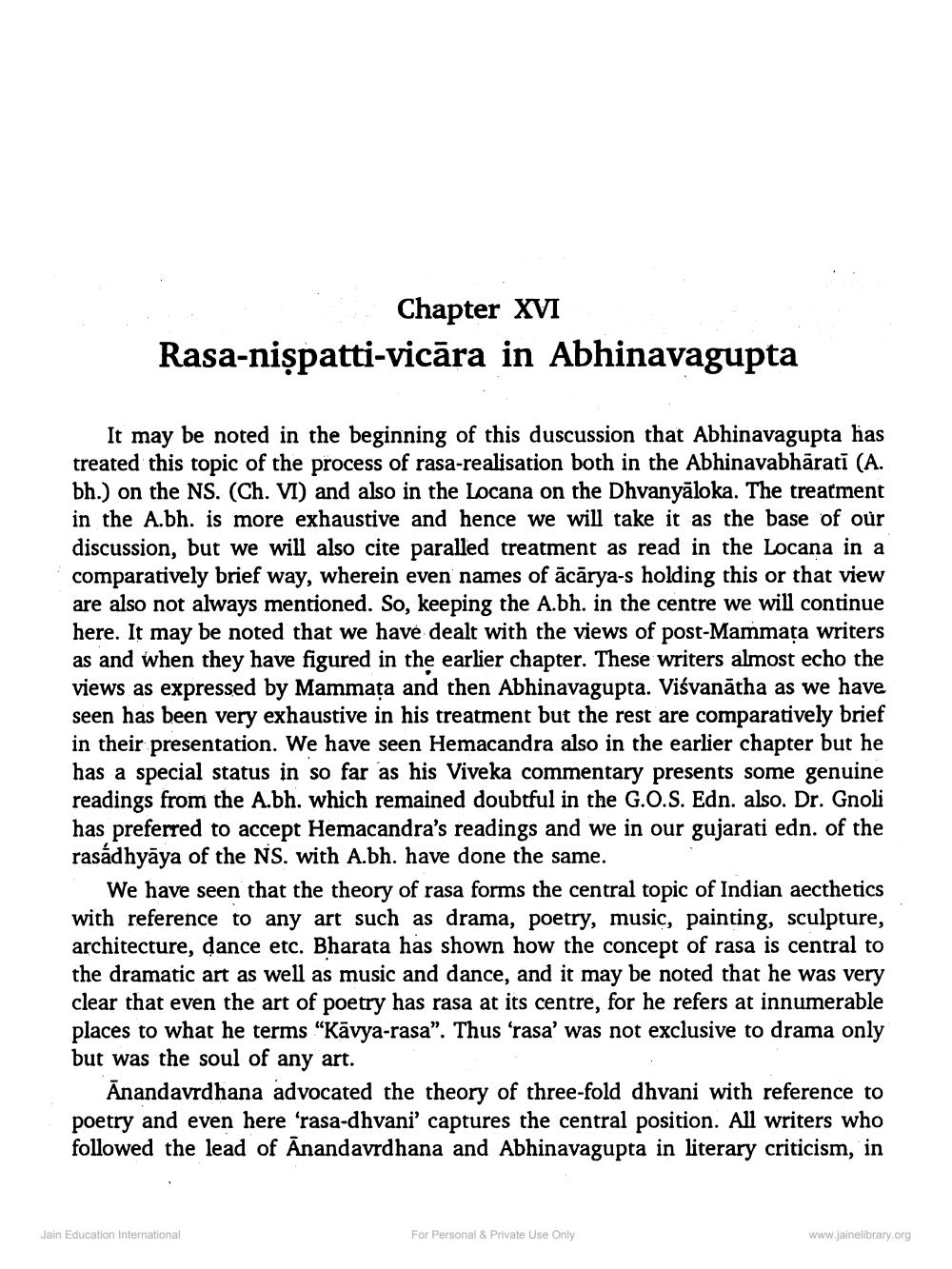________________
Chapter XVI Rasa-nişpatti-vicāra in Abhinavagupta
It may be noted in the beginning of this duscussion that Abhinavagupta has treated this topic of the process of rasa-realisation both in the Abhinavabhārati (A. bh.) on the NS. (Ch. VI) and also in the Locana on the Dhvanyāloka. The treatment in the A.bh. is more exhaustive and hence we will take it as the base of our discussion, but we will also cite paralled treatment as read in the Locana in a comparatively brief way, wherein even names of ācārya-s holding this or that view are also not always mentioned. So, keeping the A.bh. in the centre we will continue here. It may be noted that we have dealt with the views of post-Mammaţa writers as and when they have figured in the earlier chapter. These writers almost echo the views as expressed by Mammata and then Abhinavagupta. Visvanātha as we have seen has been very exhaustive in his treatment but the rest are comparatively brief in their presentation. We have seen Hemacandra also in the earlier chapter but he has a special status in so far as his Viveka commentary presents some genuine readings from the A.bh. which remained doubtful in the G.O.S. Edn. als has preferred to accept Hemacandra's readings and we in our gujarati edn. of the rasádhyāya of the NS. with A.bh. have done the same.
We have seen that the theory of rasa forms the central topic of Indian aecthetics with reference to any art such as drama, poetry, music, painting, sculpture, architecture, dance etc. Bharata has shown how the concept of rasa is central to the dramatic art as well as music and dance, and it may be noted that he was very clear that even the art of poetry has rasa at its centre, for he refers at innumerable places to what he terms "Kāvya-rasa". Thus 'rasa' was not exclusive to drama only but was the soul of any art.
Anandavrdhana advocated the theory of three-fold dhvani with reference to poetry and even here 'rasa-dhvani' captures the central position. All writers who followed the lead of Anandavrdhana and Abhinavagupta in literary criticism, in
Jain Education International
For Personal & Private Use Only
www.jainelibrary.org




